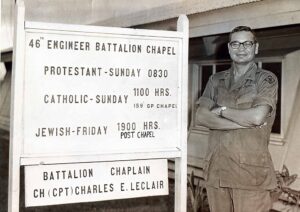
NASHVILLE (BP) – This weekly Bible study appears in Baptist Press in a partnership with Lifeway Christian Resources of the Southern Baptist Convention. Through its Leadership and Adult Publishing team, Lifeway publishes Sunday School curricula and additional resources for all age groups.
This week’s Bible study is adapted from the Bible Studies For Life curriculum.
Bible Passage: 1 Kings 17:17-24
Discussion Questions:
- When have you seen a group or community turn to prayer for a significant need?
- What holds us back from expressing our emotions, fears and pain before God in prayer?
- When have you seen answered prayer point others to God?
Food for thought:
You’re familiar with Murphy’s Law, that says anything that can go wrong will go wrong. The British variation is Sod’s Law, which means the same thing but also carries the notion of being mocked by fate. Then there’s the addendum used with both laws: Finagle’s Law. This law says anything that can go wrong, will go wrong and at the worst possible time.
In times like these, we can relate to the widow at Zarephath. First, she had lost her husband and had little means of income. Then a drought came, and her resources started to dwindle. When she had only enough flour and oil for one final meal, the unexpected appearance of Elijah on her doorstep brought relief in the form of renewed food resources. But just when it seemed things were returning to normal, life came crashing down again. The widow’s son became extremely sick. Then she experienced that horrific moment when her son stopped breathing, and life left his body.
The “why” of suffering is not always clear. C.S. Lewis wrote, “God whispers to us in our pleasures, speaks in our conscience, but shouts in our pains: It is His megaphone to rouse a deaf world.”1
We may not know the reasons why, but suffering shouts for us to look to God. Real faith doesn’t presume to know why God allows what He allows. Real faith asks the hard questions. It voices the doubts and anguish we feel. But real faith keeps coming back to God. It trusts that, whatever happens, God is all loving and all powerful; it trusts that God is the answer to our every need.
In crying out to God, Elijah spoke up for the widow. He pleaded for the help she needed. He demonstrated the only two things needed to be a great prayer warrior: compassion for someone in need and faith that God can help.
We call this intercessory prayer. An intercessor is a go-between, someone who mediates between two parties, and when we intercede for others in prayer, we are going to God on behalf of others.
- S. Lewis, The Problem of Pain (New York: MacMillan Publishing Company, 1962), 93.
Bible Studies for Life
Bible Studies for Life connects the Bible to life for adults, students, and kids. Bible Studies for Life helps individuals and groups know God’s Word through trustworthy content, creates biblical community through engaging and conversational group studies, and helps people engage the culture missionally by unpacking what the Bible says about real-life issues. More information can be found on the Internet at lifeWay.com/biblestudiesforlife.














